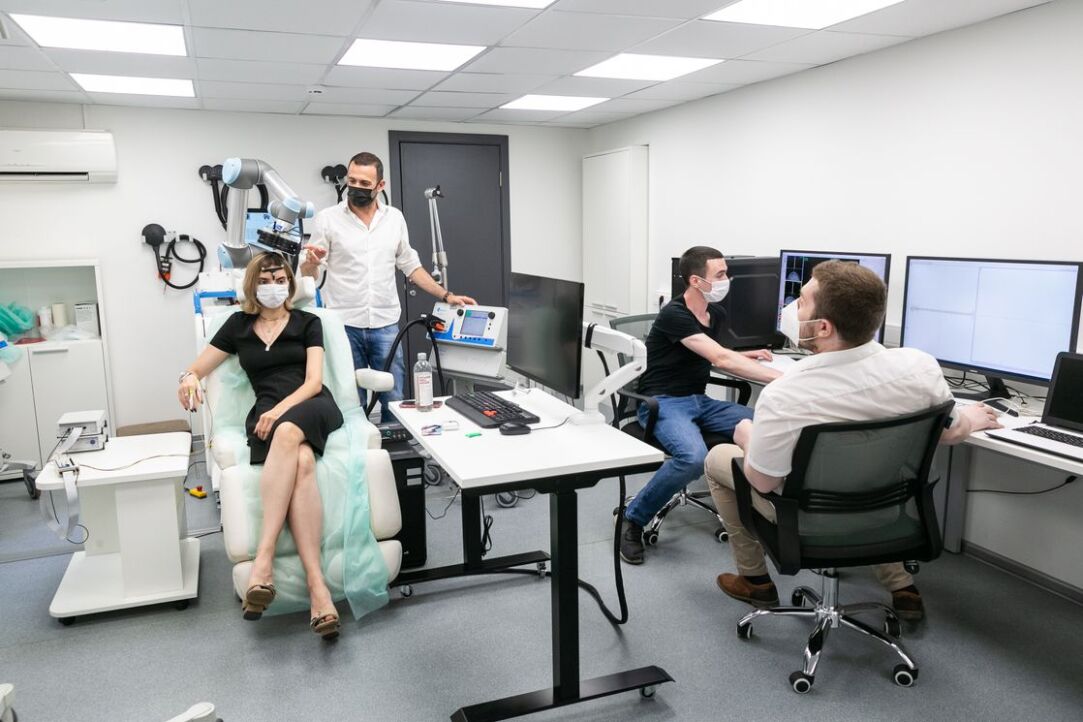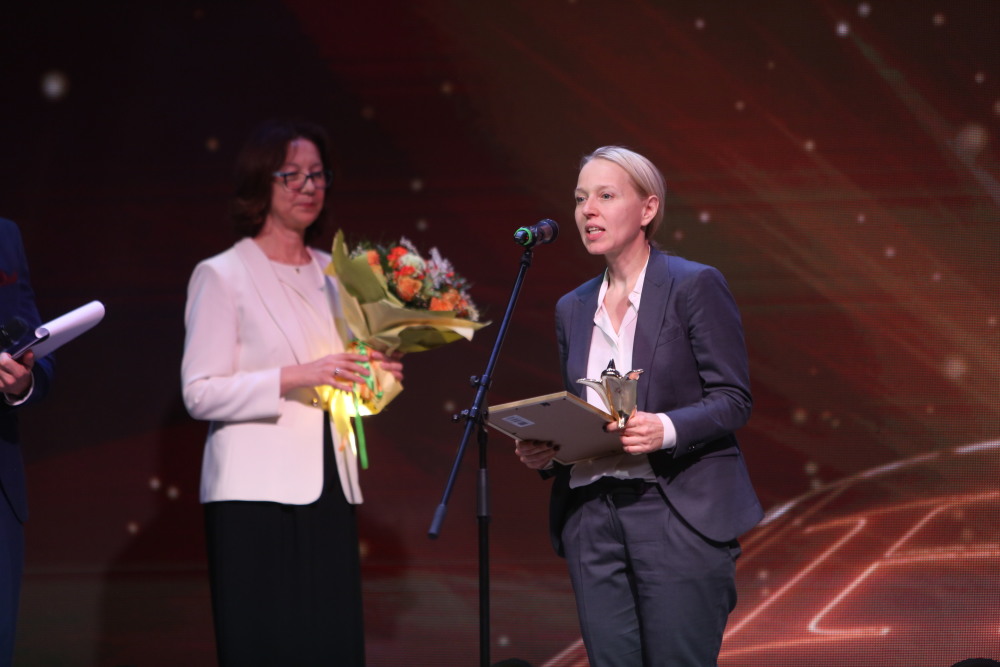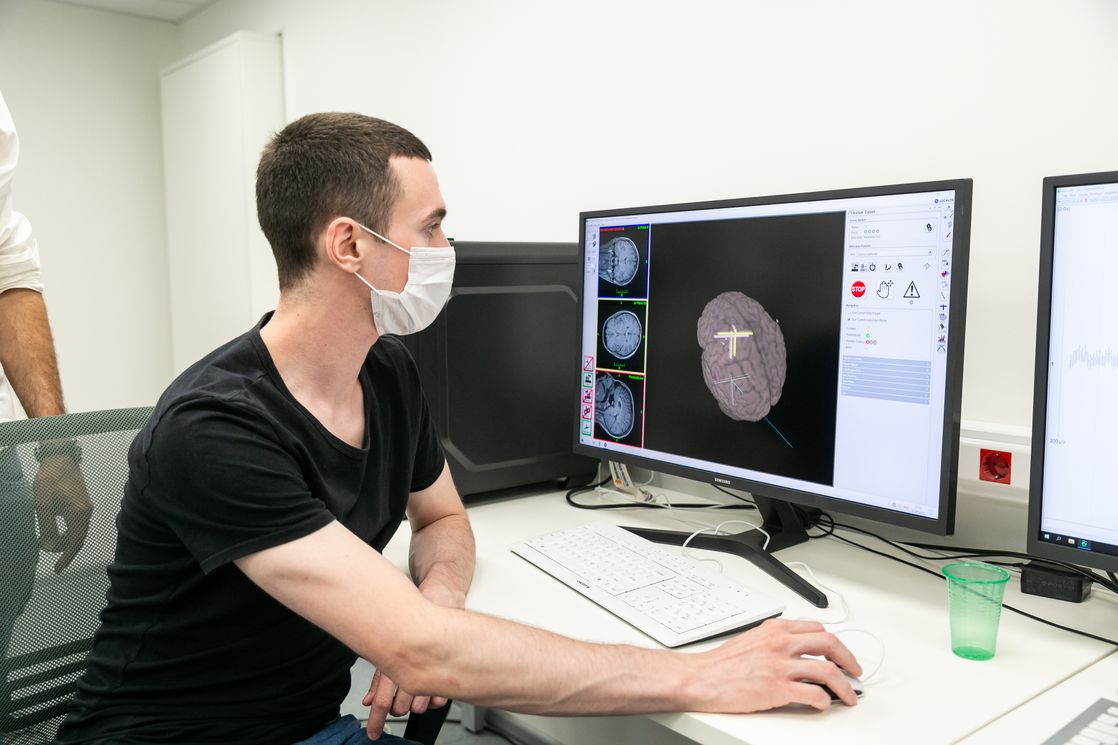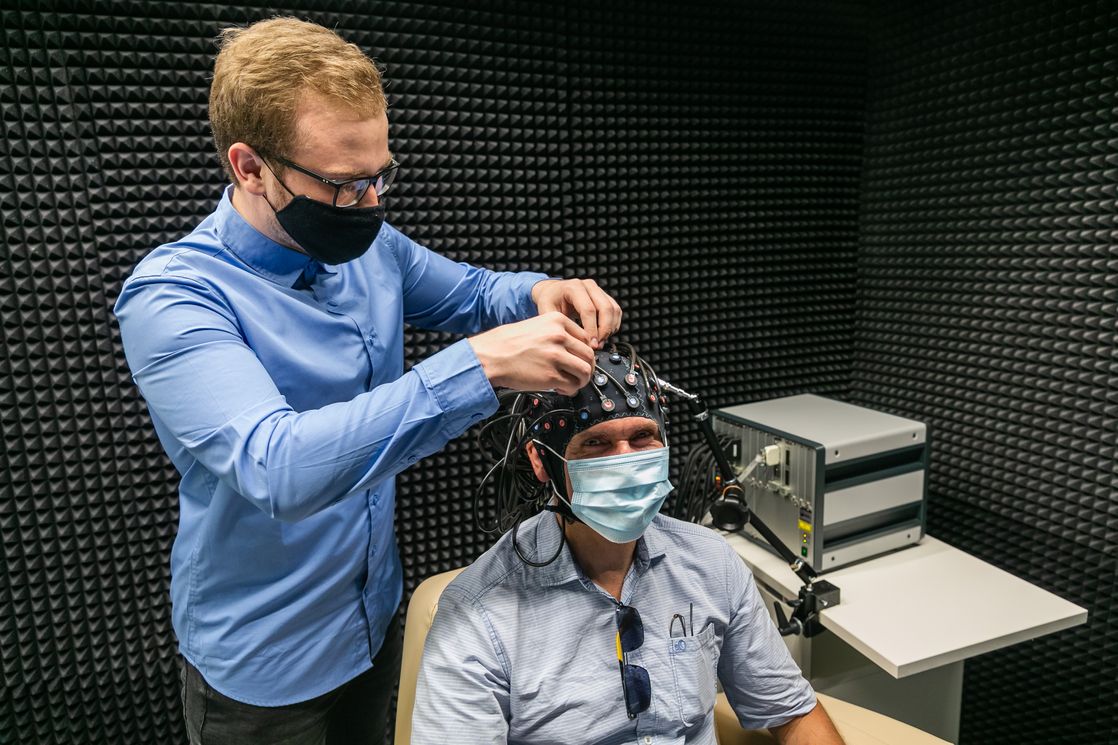‘We Are Developing Technologies to Support People and Strengthen the Intellect’

HSE News Service spoke to Director of the Institute of Cognitive Neurosciences, Head of the Centre for Cognition and Decision Making at HSE University, Anna Shestakova about the achievements and goals of the new HSE University’s strategic project ‘Human Brain Resilience: Neurocognitive Technologies for Adaptation, Learning, Development, and Rehabilitation in a Changing Environment’.

— Please tell us how the project idea came about, who initiated it, and how the team was formed.
— It was launched in the spring of this year, and was preceded by a great deal of work. We, like all divisions, participated in the initial competition for strategic projects. Taking into account the growing interest in the achievements of the brain sciences and the importance of developing new neurotechnologies, together with the Centre for Language and Brain, the Faculty of Computer Science, and the Faculty of Biology and Biotechnology, as well as partner laboratories at HSE University in St. Petersburg, Nizhny Novgorod, and Perm, we began to form a multidisciplinary project with the apposite name of ‘The Resilient Brain’.
The Institute for Cognitive Neurosciences (ICN) and the Centre for Language and Brain (CNB) are unique scientific divisions demonstrating outstanding world-class results both in the field of studying the neurobiological foundations of brain activity and in the field of diagnosis and rehabilitation of cognitive impairments and disorders.
We study the brain mechanisms of decision-making, memory, attention, speech, body-brain interaction, and cognitive reserve; we are engaged in the neuromodelling of brain processes, creating algorithms for artificial and extended natural intelligence for a wide range of cognitive tasks, developing brain signal decoding programmes and multimodal neuroimaging, neurofeedback, speech diagnostics neurotechnologies, stimulation-free preoperative mapping, and much more.
Psychologists, linguists, mathematicians, physicists and engineers, doctors and biologists—together we are developing neurotechnologies using augmented intelligence aimed at improving the quality of human life and expanding cognitive functions.
— What are the project goals and objectives?
— There are three of them: fundamental, applied and educational.
Scientific discoveries about the functioning of the human brain, as well as neurotechnologies developed as a result of these advances, will be significant for many priority areas. The concepts and tools developed can be used to respond to the key challenges of modern reality: the need for rapid adaptation and learning in a changing situation, population aging, and an increase in the number of neuropsychiatric diseases. The biomedical tools we develop can be implemented in various areas of healthcare and improve its manufacturability based on the principles of a personalised approach. The resulting computational solutions based on the work of the human brain will be able to advance research in the field of artificial and extended natural intelligence.

Neurotechnologies for the correction of speech disorders are being developed by CNM under the guidance of its Director Olga Dragoy. Computerised game tools for correcting children’s learning difficulties (in particular, reading) in the language sphere are also being advanced there.
Under the leadership of Alexey Ossadtchi, together with LIFT (a new centre for biomedical technologies), a unique new-generation non-contact encephalography technology using optical magnetometry is being developed.
Finally, within the project’s framework, technologies for the neuroprediction of market behaviour and neurocognitive technologies for optimising urban spaces are under development.
— What is the project's main peculiarity, its uniqueness?
— The focus on augmented intelligence as the antithesis of artificial intelligence: to put people first and technology second. This is very important, because in the world of new technologies, one should understand how the human intellect works and what the brain mechanisms are in order to create new technologies to improve the abilities of the brain and the human.

— What scientific works formed the basis of the proposed solutions?
— Our consortium is, first and foremost, a team of outstanding world-famous scientists who are able to captivate young people with scientific and applied problems at the forefront of science and neurotechnologies. ICH employees annually publish around 50 papers in leading international journals, including NeuroImage, Human Brain Mapping, Stroke, JNeuroisci, PNAS, PLOS Biology, and many others. HSE University employs outstanding specialists in the field of studying the neurocognitive mechanisms of human cognition, and each of them is a unique researcher in their field.
— What results are expected to be obtained after the project implementation and what has been done so far?
— The results include technologies for the development of programmes for correcting speech disorders, as well as applications and games for children. These are also tools for biomedicine: passive preoperative non-invasive mapping without stimulation for brain surgery, new neuroimaging technologies, next-generation encephalography, new neurostimulation protocols, and much more.
The project partners have accumulated impressive experience in the implementation of applied research. FCS scientists are the authors of mathematical methods that can be applied to the study of natural and augmented natural intelligence.

— How often is it possible to use scientific approaches in the solution of applied problems?
— Almost always, the transfer of research into technology is a global trend. However, it is important to note that not every fundamental result can be applied to the solution of specific problems, in our case, those related to the rehabilitation and diagnosis of various pathologies.
— Do you think it is possible to broadly use technology to enhance/strengthen the physical and cognitive abilities of a human in the near future?
— Thanks to the growth of computer technology and AI, the development and implementation of technologies such as neuro- and biofeedback and brain-computer interfaces have accelerated remarkably and are already being used in medicine and education.
Neurofeedback technology (NFB) is a neuromodulation technology that allows a person to control the activity of their own brain. Within the framework of this approach, signals of brain activity are analysed in real time and parameters characterising brain activity are calculated, then information about it is presented to the user. The use of the NFB allows the user to learn self-regulation skills, including the conscious regulation of brain activity.

— Is it possible to apply your developments in the prevention and treatment of diseases and, possibly, the prevention of deviant behaviour?
— Most of our work is aimed at studying the mechanisms of decision-making, visual and auditory perception, their norm and pathology. For example, in Alzheimer’s disease, schizophrenia and autism, certain cognitive functions are impaired. If we know how the brain provides a particular function and how its implementation differs in pathology, we can diagnose disorders and even point out abnormalities in the brain with certain problems.
— What departments and research groups are involved in the project outside of HSE University?
— These are all medical universities, research medical institutions; they are all tied to the development of biomedical technologies.
— How will the project contribute to the development of the university?
— One can call it a new direction in the natural sciences. It is a project with an emphasis on the natural sciences. We are entering the biomedical research market, and this is important for the reputation of HSE University as a multidisciplinary university.
The project has several tasks, including the creation of unique educational tracks. The key educational initiative is the Master’s programme ‘Cognitive Sciences and Technologies: From Neuron to Cognition’, which is very popular among HSE University applicants. For the second year, the new Bachelor’s programme ‘Cognitive Neurobiology’ on the basis of the Faculty of Biology and Biotechnology (supervised by Olga Martynova) is welcoming new applicants.
Thanks to the effort of ICN, a new cross-disciplinary graduate school in cognitive science has emerged.
We have become trendsetters in creating new areas of education, for example, the cross-cutting track ‘bachelor’s degree —master’s degree—postgraduate studies.’
The annual school on active and passive methods of neuromapping led by Matteo Feurra and Evgeny Blagoveshchensky is also enjoying great success.
See also:
HSE Scientists Optimise Training of Generative Flow Networks
Researchers at the HSE Faculty of Computer Science have optimised the training method for generative flow neural networks to handle unstructured tasks, which could make the search for new drugs more efficient. The results of their work were presented at ICLR 2025, one of the world’s leading conferences on machine learning. The paper is available at Arxiv.org.
Neural Network Trained to Predict Crises in Russian Stock Market
Economists from HSE University have developed a neural network model that can predict the onset of a short-term stock market crisis with over 83% accuracy, one day in advance. The model performs well even on complex, imbalanced data and incorporates not only economic indicators but also investor sentiment. The paper by Tamara Teplova, Maksim Fayzulin, and Aleksei Kurkin from the Centre for Financial Research and Data Analytics at the HSE Faculty of Economic Sciences has been published in Socio-Economic Planning Sciences.
Larger Groups of Students Use AI More Effectively in Learning
Researchers at the Institute of Education and the Faculty of Economic Sciences at HSE University have studied what factors determine the success of student group projects when they are completed with the help of artificial intelligence (AI). Their findings suggest that, in addition to the knowledge level of the team members, the size of the group also plays a significant role—the larger it is, the more efficient the process becomes. The study was published in Innovations in Education and Teaching International.
Advancing Personalised Therapy for More Effective Cancer Treatment
Researchers from the International Laboratory of Microphysiological Systems at HSE University's Faculty of Biology and Biotechnology are developing methods to reduce tumour cell resistance to drugs and to create more effective, personalised cancer treatments. In this interview with the HSE News Service, Diana Maltseva, Head of the Laboratory, talks about their work.
Master’s Students of HSE, University of Campinas, and Tsinghua University Publish Joint Student Research Collection
Master’s students of the HSE ISSEK programme ‘Science, Technology and Innovation Management and Policy’ have released a joint research collection with the University of Campinas (Brazil) and Tsinghua University (China) titled ‘Being Innovative or Being on the Safe Side—Managing the Risk of Failure.’ The authors explore how organisations perceive risks and embrace innovation within different cultural contexts.
‘A Turn Away from Stereotypes’: Moscow Hosts ‘Researching the Deaf Community’ Conference
On October 17–19, 2025, the third annual interdisciplinary conference ‘Researching the Deaf Community 2025: on the Periphery of Attention’ took place at GES-2 House of Culture in Moscow. The event was organised with the participation of the HSE International Laboratory for Social Integration Research. HSE University Vice Rector Irina Martusevich addressed attendees at the opening ceremony.
Exploring the Mind: HSE Scientists Discuss Cognitive Technologies of the Future
Why we make irrational decisions, how the brain responds to fakes, and whether neural networks are capable of thinking—these were the topics discussed by early-career scientists of HSE University during the NAUKA 0+ science festival. The event brought together students and experts from various fields, united by a common goal—to deepen their understanding of the human brain and cognitive technologies.
HSE Researchers Assess Creative Industry Losses from Use of GenAI
Speaking at the IPQuorum.Music forum on October 15, Leonid Gokhberg, HSE First Vice Rector, and Daniil Kudrin, an expert at the Centre for Industry and Corporate Projects of HSE ISSEK, presented the findings of the first study in Russia on the economic impact of GenAI on creative professions. The analysis shows that creators’ potential losses could reach one trillion roubles by 2030.
International Dialogue on Urban Development: Dynamic Urbanism and Green Infrastructure
In September 2025, the HSE Faculty of Urban and Regional Development (FURD) hosted a delegation of leading scholars and urban development experts from China. Two seminars were held at the Shukhov Lab with the participation of Chinese colleagues: the first focused on green infrastructure, while the second explored the theme of dynamic urbanism. In addition, a meeting between the Chinese delegation and representatives of FURD took place at the university’s main building on Pokrovsky Bulvar. The participants discussed opportunities for expanding cooperation between universities and research centres.
HSE Tops the Ranking of Universities with the Best Employer Reputation
On October 16, 2025, Forbes Education published its list of the top 20 Russian universities with the best employer reputation in 2025. The ranking was based on a survey of leading Russian employers, who named the higher education institutions whose graduates they consider the most well-prepared and are most inclined to hire. HSE University took first place in the ranking.


